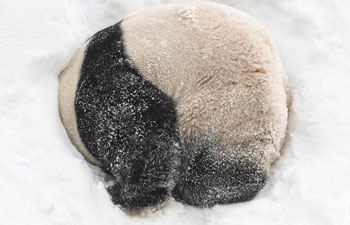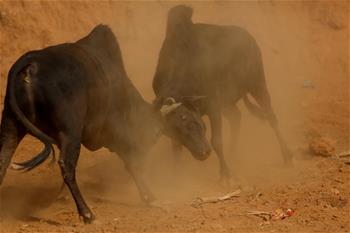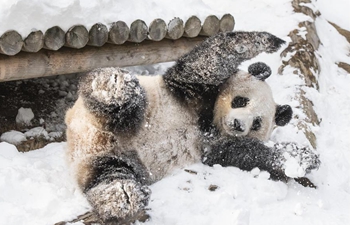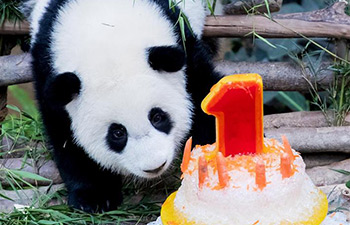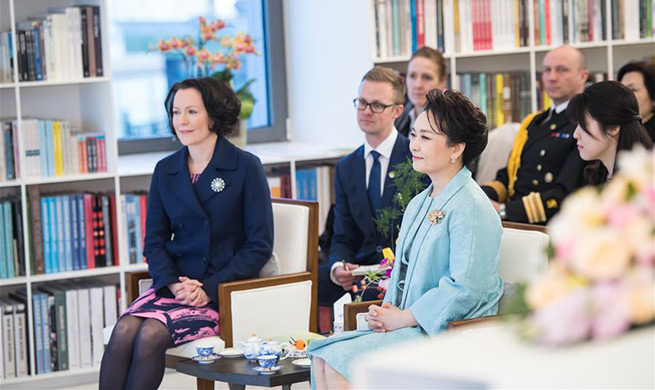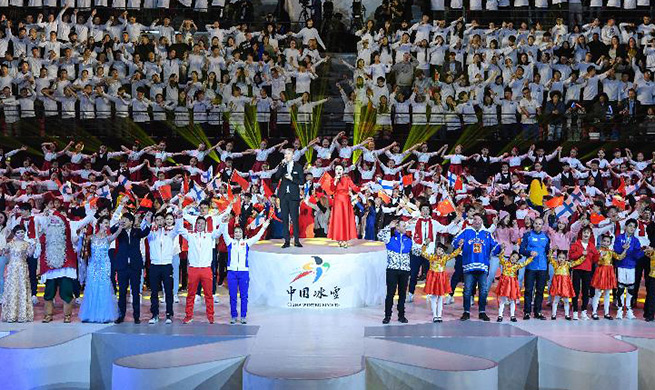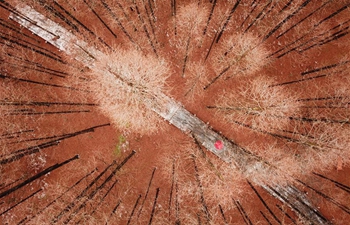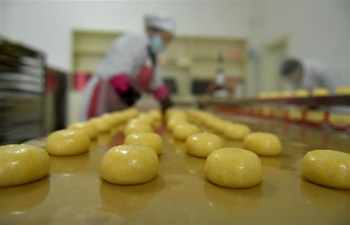by Xinhua writers Yao Yuan, Yin Xiaosheng and Huang Xiao
HANGZHOU, Jan. 16 (Xinhua) -- How valuable is a yuan (14 U.S. cents) in today's China? Perhaps half a bottle of water, one-tenth of a McDonald's cheeseburger, or one-hundredth of a stylish haircut in downtown Beijing.
But at a clinic in east China's Zhejiang Province, it is the medical bill of everything from consultation to transfusion to prescribed medicines. Dr. Wu Guangchao is no mercenary.
For the past five decades, Wu has been the sole physician, nurse, acupuncturist and accountant of the clinic in Meitang Village. He is one of the nearly 1 million grassroots medical practitioners in China's vast countryside known as "village doctors."
Wu represents the philanthropic face of the profession. Defying annual inflation, he has maintained 1-yuan services for the past 36 years. Wu uses a rusty coin box to collect fees.
"The practice of medicine is doing good work," said the 73 year old. "Respect and trust from the fellow villagers are what I value most."
In many rural areas, village doctors (once known as barefoot doctors) act as a primary healthcare provider. Wu's main mission is treating common diseases and minor injuries, saving villagers the trouble of trudging miles to larger hospitals in towns.
A typical day of Wu starts around 6 a.m. when the elderly, now the main residents of the village, started to visit. Any emergency calls at night pull Wu out of bed.
"The village has about 600 people, and I remember every patient's condition and medical history," Wu said.
Decades of hard work and dedication have made him one of the most esteemed figures in the village. When he was hospitalized after a bicycle accident, over 100 villagers visited him.
In 1983, Wu's clinic started to receive subsidies from the government, which were significantly increased in 2011. But the 4,500 yuan he now gets in monthly subsidy is hardly enough to offer 1-yuan medical bills to more than 4,000 visiting patients annually, according to the government of Jiande city, where the village is located.
While other village clinics charge about 50 yuan for the same service, Wu was reluctant to hike the price for the villagers, many of whom he had served for decades.
So where the government funds cannot cover costs, Wu makes it up with his own salary. To reduce costs, the elderly doctor also treks into the mountains to collect herbs for his traditional Chinese medicine therapies.
The search for herbs brings back an extraordinary memory for Wu. In one of these dangerous trips in 1969, Wu witnessed his colleague in another village fall off a cliff and die.
"His death moved me a lot. After that I decided to carry on his wish and stay in the job to care for more villagers," Wu said.
Between the 1950s and 1980s, China placed its rural population under a rural cooperative medical system, which featured a central role for barefoot doctors. These half farmer, half doctors, many of whom had only basic medical training, were at the front of the nation's fight against epidemics like malaria.
The system was later overhauled with the injection of more government funds, and large number of barefoot doctors received additional training to become known as village doctors.
But despite enhanced qualifications and improved subsidies, China's village clinics remain the underdogs in the competition for competent young doctors.
According to a 2017 report by the Chinese Health Service Management journal, China's rural doctors are aged and many village clinics are struggling to retain doctors with decent salaries.
Wu looked grave when asked about his successors. "I hope there will be more young, college-educated doctors willing to stay in the countryside."
"I plan to work until I cannot, and my son can take my position after that if there are no other successors. We just can't leave those elderly villagers unattended."




